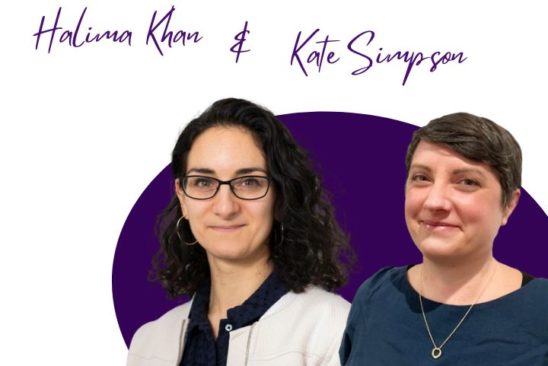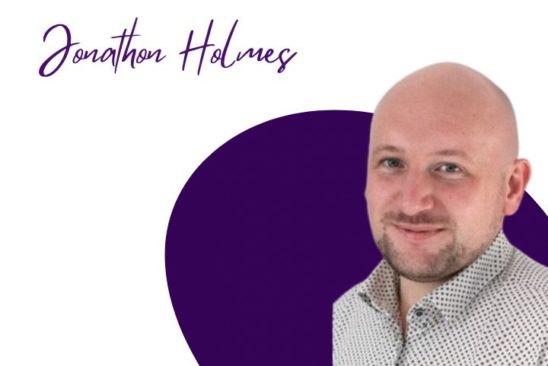Authors
The pandemic has been a challenging period for so many and for different reasons.
Covid-19 and Black Lives Matter have placed racism and inequalities in the spotlight, highlighting the deep-rooted racial tensions in our communities. This is an issue that has always been present in our society but, I hope, it feels like now we have reached a turning point in history. And this turning point includes health and care.
Over the past 18 months, anti-racism protests across the country and worldwide have at times been the most prominent headline in the news. While the Black Lives Matter movement started in 2013, the killing of George Floyd brought recognition to the movement and the challenges certain groups face. This has been further sparked by the racism following Euro2020. At the same time, Covid-19 research indicates that people from black, Asian and minority ethnic backgrounds are at a higher mortality risk from Covid-19 and not due to underlying conditions (Aldridge et al. 2020).
The wider/social determinants of health that disproportionately impact minoritised communities appear to be more recognised and talked about now more than ever before.
It is well-known how the health and social care sector has had and continues to have problems with racism which reflect wider society. This can be explicitly through insults or abuse from colleagues, managers, patients, or families/carers. However, there are more implicit racial challenges through bias in promotion.
A 2019 Nursing Times and Unison survey highlighted how two-thirds of nurses had observed racial discrimination or disadvantage affecting someone else in the last 12 months. Furthermore, nearly half of those completing the survey (1000 respondents) had experienced racial discrimination or disadvantage personally (Ford, 2019).
In 2020, the Workplace Racial Equality Standard (WRES) report revealed the percentage of staff from black, Asian and minority ethnic backgrounds who had experienced harassment/bullying, or had been discriminated themselves, was at its highest (NHS., 2020). There is consistent evidence that people from minoritised groups are more likely to undergo disciplinary procedures, and there are several examples from a range of health professions including medicine, nursing, and allied health professionals.
One of the things I know about my experience of the health and care system is that change takes time and can be challenging to sustain. The old world often bites back as it is easier to go back to what you know. Staff from certain groups do not feel they belong in the NHS compared to their white counterparts, need to work harder to be commended and, ultimately, promoted. Despite a workforce population made up of 22.1% of black, Asian and minority ethnic groups, only 7% are in very senior management positions (NHS Workforce statistics) This is important because representation matters. It is also well known that diversity (in all its forms) at senior and executive level is likely to lead to better decisions and outcomes.
There are many challenges for health and care leaders, but workforce and inequality are amongst the highest priority consistently raised. One key question for health and care leaders at all levels is: how do we foster and create a sense of belonging? The NHS has worked to improve equality for some time, such as the positive action programme Ready Now hosted by the NHS Leadership Academy. In addition, the previously mentioned WRES has provided a framework and a set of standards for NHS organisations to work towards and measure themselves against since 2015. There are also examples of various initiatives such as the growth of black, Asian and minority ethnic networks in the NHS, reverse mentoring, and unconscious bias training to bring awareness to certain issues and reduce workforce inequalities. A question remains however whether this will truly change the experience of staff from black, Asian and minority ethnic backgrounds.
Analysing this with a systems and complexity lens will reveal several contributing factors; including institutional, structural, and historic issues/biases that continue to reproduce results that we know are not good enough at a team, department, organisational or systems level. Beyond spotlighting these issues, the pandemic and Black Lives Matter seems to have created a once in a generation opportunity, space for conversations and reflection to occur, and for leaders at all levels to listen en masse and make meaningful change. We also hope for real change, and that I will be able to write about a positively changing culture at some point. However, we must work together to maintain that focus and momentum if this is to happen.
References
Aldridge, R.W., Lewer, D., Katikireddi, S.V., Mathur, R., Pathak, N., Burns, R., Fragaszy, E.B., Johnson, A.M., Devakumar, D., Abubakar, I. and Hayward, A., 2020. Black, Asian and Minority Ethnic groups in England are at increased risk of death from COVID-19: indirect standardisation of NHS mortality data. Wellcome open research, 5.
Ford 2019: Exclusive: High level of racial discrimination faced by nurses revealed. https://www.nursingtimes.net/news/workforce/exclusive-high-level-of-racial-discrimination-faced-by-nurses-revealed-02-10-2019/ accessed Dec 2021
NHS Workforce statistics (2021) https://www.ethnicity-facts-figures.service.gov.uk/workforce-and-business/workforce-diversity/nhs-workforce/latest





